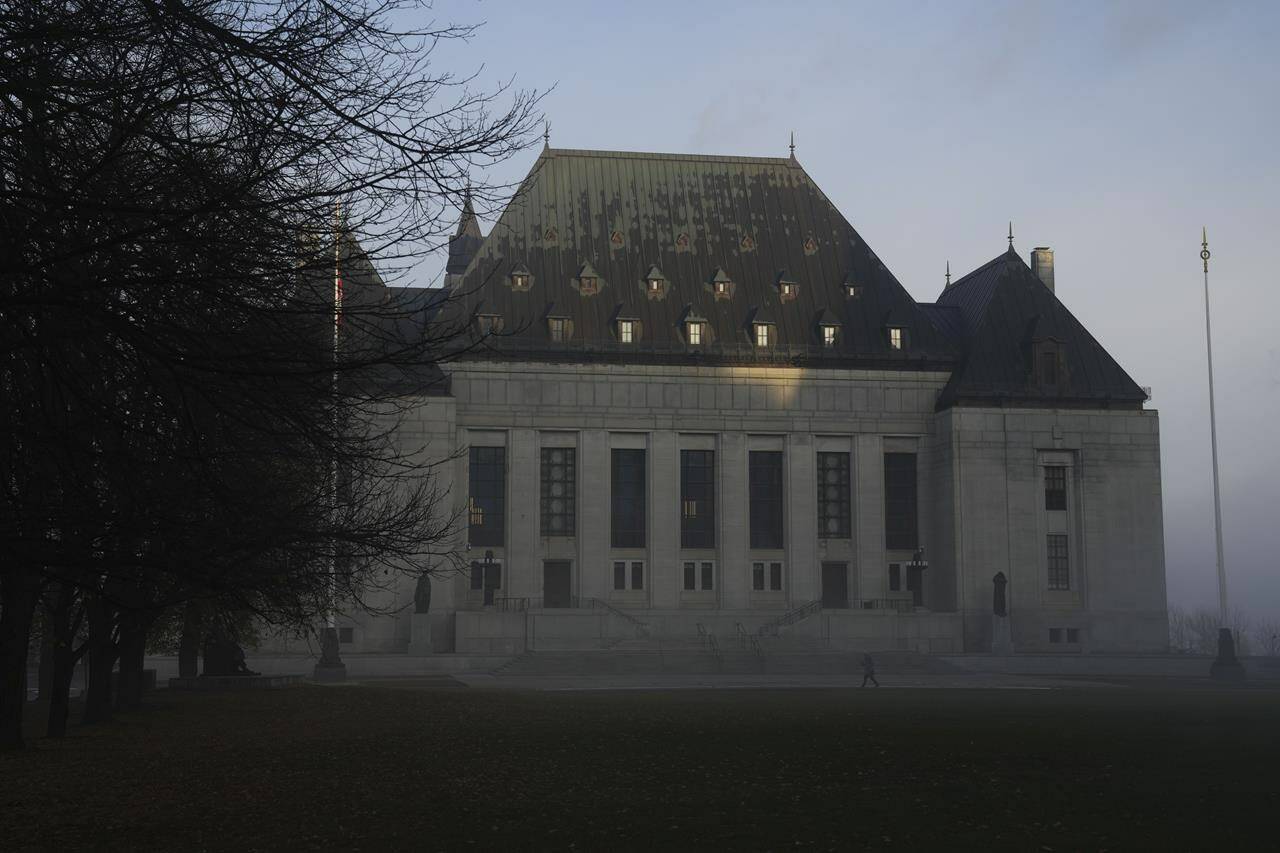The Supreme Court of Canada has upheld the murder convictions of a man who represented himself at trial but complained later the proceedings were tainted by a perception of unfairness.
In a unanimous ruling Friday(July 28), the top court said no miscarriage of justice arose in Emanuel Kahsai’s trial.
Five years ago, a jury convicted the Calgary man of two counts of first-degree murder for fatally stabbing his mother and a vulnerable woman in her care.
Kahsai behaved disruptively throughout the trial in an Alberta court.
The judge appointed amicus curiae — counsel known as a friend of the court — to help out, but Kahsai was generally uncooperative with him.
A majority of Alberta’s Court of Appeal dismissed Kahsai’s challenge of his convictions, saying he made a conscious and calculated decision to abuse the court process in an attempt to derail the proceedings.
However, a dissenting opinion from one Court of Appeal judge opened the door to a hearing in the Supreme Court of Canada.
In its decision, the top court noted Kahsai failed to co-operate with the trial process or advance any coherent defence. He was repeatedly removed from the courtroom due to his unruly behaviour.
The trial judge decided partway through the proceedings that an amicus was needed to ensure fairness. The amicus cross-examined Crown witnesses but was told not to advocate on Kahsai’s behalf.
Kahsai argued the timing of the appointment prevented the amicus from adequately preparing. He also claimed the trial judge should not have allowed the trial to wrap up without closing arguments for the defence.
Writing on behalf of the Supreme Court, Justice Andromache Karakatsanis said it was an error in principle for the judge to restrict the trial amicus from assuming adversarial functions or delivering a closing address.
“But the appointment of amicus is a highly discretionary decision, and the trial judge was under no obligation to appoint amicus at a particular time or with a particular mandate,” she wrote.
Karakatsanis acknowledged there were many troubling aspects to the trial.
“At the same time, these concerns must be considered in the context of the exceptional situation that confronted the trial judge, who was trying to manage an exceedingly difficult trial,” she said.
“The judge aimed to respect the choice of Mr. Kahsai to represent himself by assisting him and facilitating his participation in the proceeding, as much as possible. It did not become obvious to the trial judge that Mr. Kahsai would not co-operate with the court or advance a meaningful defence until the trial was underway.”
The trial judge took many steps to ensure fairness for Mr. Kahsai, Karakatsanis wrote.
Among these steps: emphasizing repeatedly that the jury was not to consider Kahsai’s erratic behaviour, seeking to restore some balance to the proceedings by asking the trial amicus to cross-examine Crown witnesses and recalling several witnesses to allow that to happen.
“Relying on psychiatric opinions that Mr. Kahsai was fit and disrupting the proceeding deliberately, the trial judge did his best to manage the process while respecting the key decisions the accused had a right to make.”
It is not clear that appointing amicus earlier or with a broader mandate would have provided much value for Kahsai, who forcefully resisted the appointment of amicus and sustained his objection to their participation throughout the trial, she added.
“In my view, a reasonable member of the public, considering the circumstances of the trial as a whole, would not find that a miscarriage of justice occurred. Instead, they would find the trial fairness concerns were sufficiently addressed by the trial judge and the assistance of amicus, such that a new trial is not required.”
Jim Bronskill, The Canadian Press
READ MORE: Supreme Court of Canada restores voyeurism conviction against B.C. hockey coach

